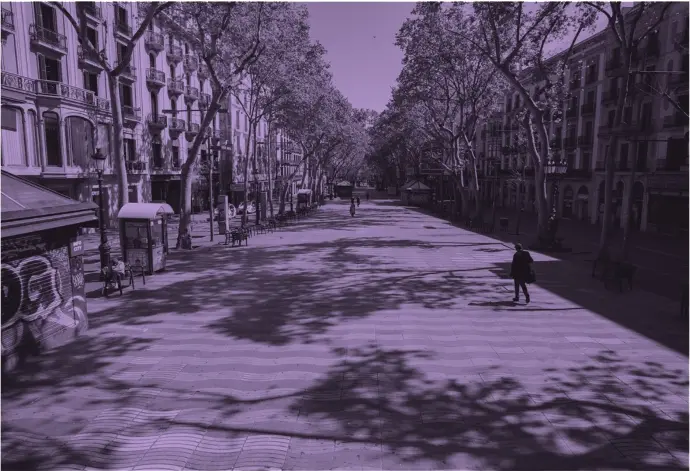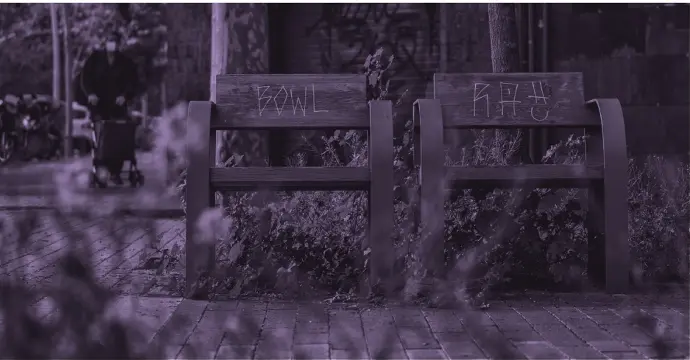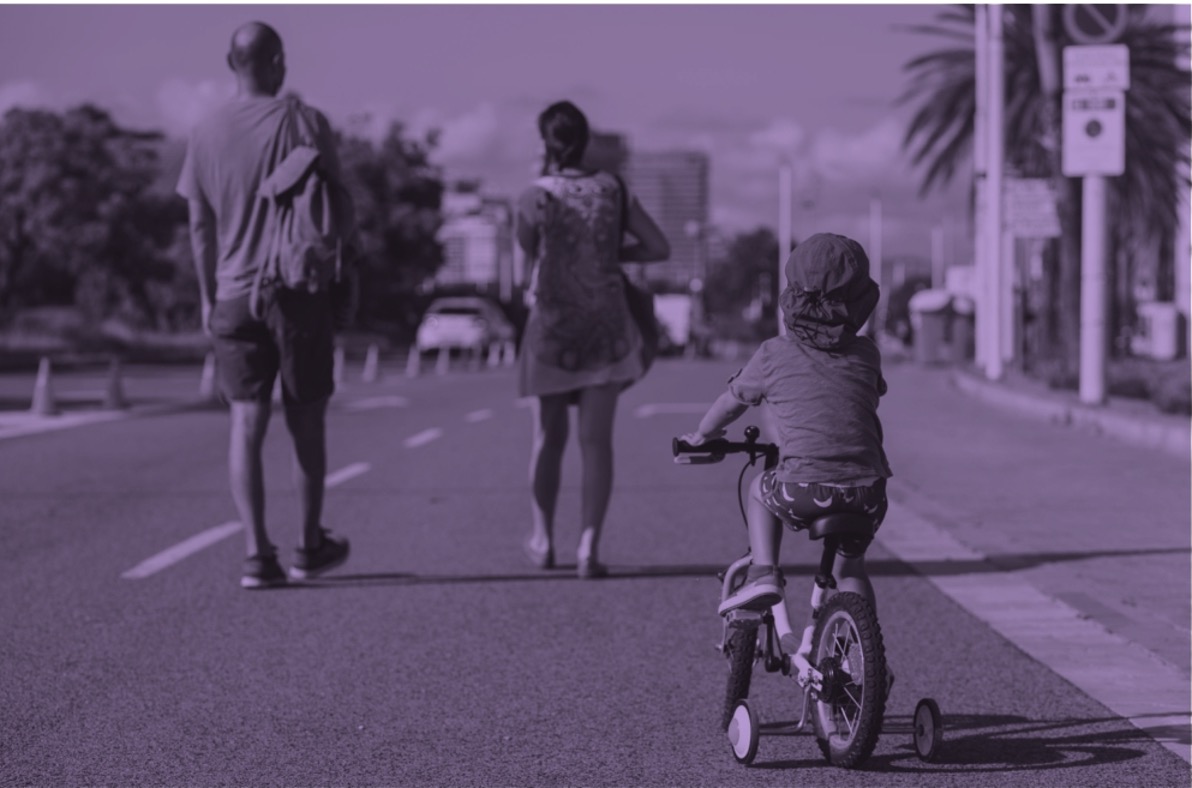-
Presentation
-
Module 1 - Understanding loneliness: learning, talking, raising awareness
-
- Join this Course to access resources
-
- Join this Course to access resources
-
- Join this Course to access resources
-
- Join this Course to access resources
-
- Join this Course to access resources
-
- Join this Course to access resources
-
- Join this Course to access resources
-
-
Module 2 -Recognising loneliness: observing, preventing, providing support
-
- Join this Course to access resources
-
- Join this Course to access resources
-
- Join this Course to access resources
-
-
Detecting urban loneliness: real-life cases for self-reflection
-
Provide feedback to the course
-
Download the full documents
-
Additional documents
Real-life cases
Urban Digital Twins
Towards evidence-based decisionmaking in cities
A partnership between Eurocities Academy and Barcelona Supercomputing Center
Detecting urban loneliness: real-life cases for self-reflection
The following situations are based on real cases that services might encounter, presented here so that we can analyse the presence of loneliness and reflect on how we can detect it. A series of questions relating to the content of this course have been proposed to help with this reflection.
Read each case carefully and try to answer the following questions, considering the reality in your area of work:
- Which risk factors mentioned in the case could signal the presence of loneliness?
- Which life events or transitions included in the case description could be a source of loneliness from a life cycle perspective?
- On which aspect would you need more information in order to detect loneliness more accurately? How could you get it? What tools or procedures are needed?
- Do you think an intersectional perspective is required? In this case, in what way could specific expressions of loneliness be generated?
- What resources or proposals could you suggest when giving guidance? Are they part of the service where you work or are they external? Do they deal with loneliness directly or indirectly?
- What kind of networking could be done in this case? How could you initiate this?

Case 1
First interview, referred from the Health Centre, 25-year-old man who has been living in Barcelona for 9 months. He does not have a relationship with his parents and has no siblings or partner. He explains that he has had no contact with his parents for over a year (since he came out as gay, his family have rejected him. He experienced homophobia in his home town – a rural municipality in the province of Huesca).
He had a road traffic accident and has been in hospital in the city for four months. He uses a wheelchair and will have to go to his local health centre every day for rehab. He has no friends or family in the city, only some acquaintances with whom he does not have
much of a bond. He lost his job in hospitality during his hospital stay and is paying the rent with his (limited) savings. He seems downcast and expresses that he is confused about the future and feels helpless.
He is in pain and the prognosis is not certain yet. His flat, which he shares with two other people with whom he has no bond on a personal level, is not wheelchair-accessible. He needs help with basic activities of daily living (BADLs) and instrumental activities of daily living (IADLs). He does not mention anyone in his network who could provide support.
Case 2

Examination of home to assess energy poverty situation. An 86-year-old woman lives there on her own. She cooks with a gas camping stove because there is no safe gas installation in the home, which she rents. She does not want any conflict with the owner (she is afraid they might kick her out), but neighbours have insisted on the housing conditions being assessed. A neighbour detected a leak by coincidence a month ago. The tenant has had difficulties paying the electricity bill for the last year. She says that this is not a particularly serious problem for her, because more and more often she eats the same for every meal: a coffee with milk and a biscuit. She receives very little by way of a pension and does not cook just for herself. On top of that, she has lost her appetite, and she says that she has been receiving treatment for depression for twelve years.
She has three children but only has contact with one of them for occasional instrumental support (he takes her to the doctor’s). She has two friends and only speaks to one of them on the phone, as one has mobility problems and does not leave the house (she lives in a neighbourhood with poor accessibility, and she does not visit her) and the other has a hearing impairment.
The home visit is longer than expected because she needs to talk and vent her emotions. She explicitly asks us not to leave because she needs to talk to someone. When the visit is over, she invites us to come back whenever we want and to call her on the phone.

Case 3
Recently widowed 81-year-old man who had a fall and broke his hip after his wife died a year ago. She had Alzheimer’s for seven years. He was her main carer throughout the illness, until she moved to a care home six months before she died. He visited her there
every day.
Since the fall, he has not left the home in two months, and he is frightened of going out alone. He has two sons, one of whom lives in Berlin, so he sees him very occasionally (Christmas, holidays), while the other lives in Molins de Rei. He gets some instrumental support from this son every two weeks (shopping, paperwork, etc.).
Six years ago, he and his wife sold their home and moved to a more accessible place, given that the wife’s degenerative disease would progress (in the old home, they did not have a lift). They moved neighbourhoods and he has no network in this one. He does not know anyone or any of the local facilities. Being a carer occupied all of his time during those seven years.
Case 4

Young woman starting to work for a multinational company. She has just completed a two-year professional qualification in administration and finance and joined the company, working as an administrative assistant in the sales department. It is a company with over one thousand employees spread out over three regional offices. She is in the central office.
She is 21 and this is her first job since finishing her studies. While she was studying, she worked as a waitress in the city to pay for her studies. Though no longer in a pandemic, the company has got used to remote working, and everyone works from home full time. She has been given everything she needs to work from home: a computer, a monitor and accessories. In addition, she has access to all the servers, databases, calendars and client accounts. She only has contact with her colleagues during the weekly operational meeting on Mondays, in which they prioritise her tasks. The weekly meetings last an hour and a half in total, and she has a five-minute slot to express any queries or concerns she may have. There are no other formal or informal spaces in the company for communication.
Her salary is slightly less than the minimum wage. She lives with her father (a widowed older man) in a village an hour away from the city because she cannot afford to pay rent. She has no other family and her network of friends is in the city.

Case 5
A request arrives at the dentist’s clinic, referred from social services. A 56-year-old woman needs dental implants (her missing teeth are very noticeable). She says that she is embarrassed about it and only talks to her sister, who is 71, with whom she has been living since she got divorced. She has no children and is unemployed.
Her sister has been certified as highly dependent, and she is her main carer. She indicates that she avoids speaking to neighbours and has difficulties starting conversations (even in a local shop) because she does not want to show her mouth. She has been divorced for fourteen years and has no contact with her ex-husband. When we ask for the details of someone who could accompany her after the procedure, she says she has no one she could ask, so she will wait at the clinic until she can leave on her own. She expresses that she only laughs when she is alone or with her sister.
Case 6

A 34-year-old woman from Ecuador who arrived a month before the pandemic, with the intention of working in a care home as a carer for dependent older people.
Due to the situation in care homes during the initial months of the Covid-19 pandemic, the job she was promised does not materialise. She is unemployed and paying the rent with the savings she accumulated before moving (which will run out soon, as her intention was to earn money). She lives with two other people in an irregular situation, but they do not have a personal relationship, and one does not speak the same language as her.
She knocks on a neighbour’s door to ask for information on how to get help, because she is on the verge of being homeless. This neighbour gives her access to her Wi-Fi so that she can contact her family – all of whom are in Ecuador – as she cannot afford a telephone line. She has not been able to build a network in the neighbourhood because of the lockdown and other restrictions.

Case 7
Worker with higher education qualifications and good planning and management capacities who has been working successfully in an organisation for two years, with excellent results. He manages a team of around ten people, showing a high degree of leadership and planning the processes and projects they need to complete with very good results.
His job is a middle management role and he is accountable to the department director, who encourages his leadership of the team and with whom he has a close relationship. However, the department director takes early retirement and the deputy director of another department without any detailed knowledge of the tasks and processes carried out in the department takes on the role. As time goes by, the new director starts to assign him basic management and administration tasks that are below his role. The director demands that he explain every small step he makes, and he limits his capacity to manage the team (he cannot give orders or issue directives), so his leadership shrinks. Little by little, his team stops trusting him. Every initiative is limited, because he cannot express an opinion on ways processes could be improved. The worker does not know who to turn to, because he feels as though if he points out the situation or complains, he will lose his job.
Case 8

Referred case from a school of an eight-year-old child originally from China who does not speak Spanish or Catalan, with very little integration in the school. The school has said that they have little contact with the parents, who do not collaborate. In the integration classroom he is reserved, and the teacher has warned of possible bullying, which has been referred to the school counselling department. The parents speak different dialects and do not speak the local language.
The child is aware that he is isolated and he cries when he is alone with teachers. Nobody knows what he does when he leaves school: he might go home, or he might work for the family business. On several occasions he has fallen asleep in the classroom
(physical signs of exhaustion) and he is often absent.
There are no comments for now.